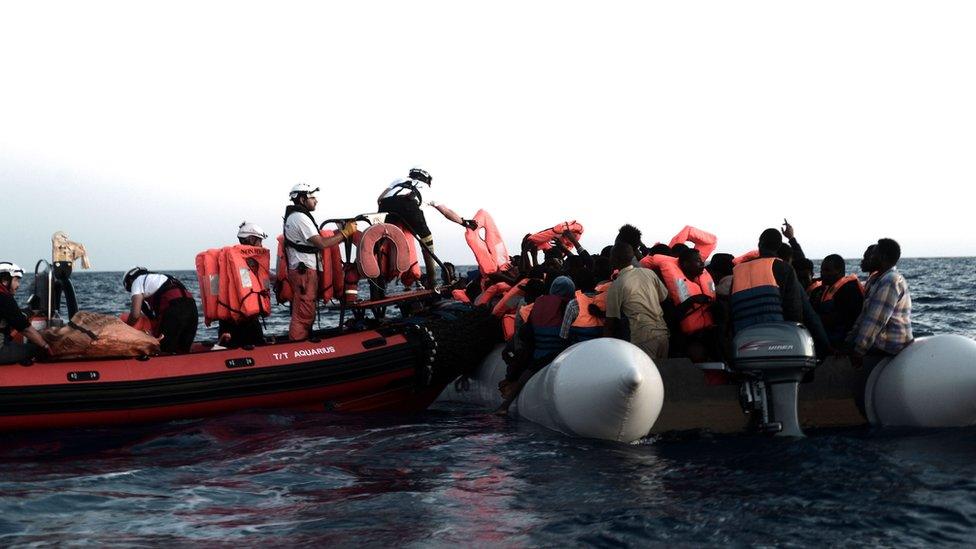SOS Méditerranée resumes Mediterranean migrant rescues
- Published

Migrants making the journey often travel in poorly maintained and overcrowded vessels
Migrant rescue charity SOS Méditerranée has resumed operations off the coast of Libya with a new ship, after the last one was forced to stop its work by European governments.
Its new vessel, the Ocean Viking, is flying the Norwegian flag.
The crew of 31 includes nine health workers from the charity's partners, Medecins Sans Frontières (MSF).
SOS Méditerranée suspended operations by its previous vessel, the Aquarius, after it was denied entry to Italy.
Thousands of migrants attempt to cross the Mediterranean to Europe every year, and Libya is a key departure point. Those who make the journey often travel in poorly maintained and overcrowded vessels, and many have died.
But since mid-2017, the number of migrant journeys has declined dramatically. The decline is largely due to efforts by Italy and other EU countries to encourage Libya to stop migrants from crossing the Mediterranean - a policy condemned by human rights organisations.
Women and children are being held in camps close to fierce fighting in Libya
SOS Méditerranée's co-founder, Sophie Beau, told the BBC that no rescue vessels were currently operating in the area, and humanitarian groups had no choice but to step in.
"We founded SOS Méditerranée in 2015. Since then we have been able to rescue 30,000 people but there were many more that were rescued by other ships, including military ships.
"But at the moment there is basically a vacuum in this place. So we as civilians, we do whatever we can where there is major failure of states. It is not satisfying but we can do this and we have to do it."
She added that international maritime law backed their stance that saving life outweighed political considerations.
In January, a UN report said six migrants had died crossing the Mediterranean every day in 2018.
The International Organization for Migration says at least 426 people have died trying to cross the central Mediterranean this year.